 CAVM Consultations: During a typical evaluation, a complete medical history is combined with information acquired from a physical examination along with VSMT findings and TCVM diagnoses. Written summaries and recommendations are made based on these findings in combination with owners’ needs, preferences, and management limitations. Communication with other parties, such as your primary care veterinarian and farrier, remains essential in the formulation of a management plan, and Dr.Bevilacqua strongly encourages such collaboration.
CAVM Consultations: During a typical evaluation, a complete medical history is combined with information acquired from a physical examination along with VSMT findings and TCVM diagnoses. Written summaries and recommendations are made based on these findings in combination with owners’ needs, preferences, and management limitations. Communication with other parties, such as your primary care veterinarian and farrier, remains essential in the formulation of a management plan, and Dr.Bevilacqua strongly encourages such collaboration.
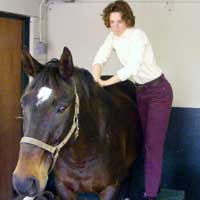 Veterinary Spinal Manipulative Therapy: VSMT, sometimes referred to as “animal chiropractic,” evaluates the range of motion of all joints throughout the body. Areas affected by subluxation may show symptoms related to muscle tone, muscle strength, neurological integrity, organ function, pain, and/or the overall health of the individual. A VSMT session biomechanically and neurophysiologically addresses this state of dysfunction, and its effects are often synergistic with those of acupuncture. Dr.Bevilacqua received her VSMT certification from the Healing Oasis Wellness Center in Sturtevant, WI.
Veterinary Spinal Manipulative Therapy: VSMT, sometimes referred to as “animal chiropractic,” evaluates the range of motion of all joints throughout the body. Areas affected by subluxation may show symptoms related to muscle tone, muscle strength, neurological integrity, organ function, pain, and/or the overall health of the individual. A VSMT session biomechanically and neurophysiologically addresses this state of dysfunction, and its effects are often synergistic with those of acupuncture. Dr.Bevilacqua received her VSMT certification from the Healing Oasis Wellness Center in Sturtevant, WI.
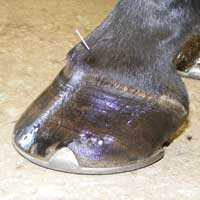 Veterinary Acupuncture: Acupuncture can be described as the use of thin needles to stimulate specific points located on the body. Techniques can include the use of dry needles with or without moxibustion, electroacupuncture, aqua-acupuncture, gold bead implantation, or pneumoacupuncture. Acupuncture has been practiced as part of Eastern Medicine for thousands of years, and it is one of the key components of TCVM. Dr. Bevilacqua received her certification in Veterinary Acupuncture from the Chi Institute in Reddick, FL.
Veterinary Acupuncture: Acupuncture can be described as the use of thin needles to stimulate specific points located on the body. Techniques can include the use of dry needles with or without moxibustion, electroacupuncture, aqua-acupuncture, gold bead implantation, or pneumoacupuncture. Acupuncture has been practiced as part of Eastern Medicine for thousands of years, and it is one of the key components of TCVM. Dr. Bevilacqua received her certification in Veterinary Acupuncture from the Chi Institute in Reddick, FL.
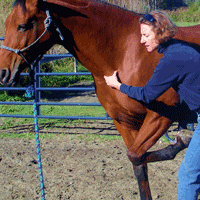 Veterinary Tui-na: Utilizing the principles of TCVM balance, tui-na is a form of medical massage and manipulative therapy which can assist in optimizing and maintaining the health and comfort of an individual both during and between sessions. Commonly used as part of a treatment protocol for pain management, individual techniques are easily taught to clients so they may appropriately address chronic musculoskeletal or neuropathic issues unique to their horses. Dr. Bevilacqua received her certification in Veterinary Tui-na from the Chi Institute in Reddick, FL.
Veterinary Tui-na: Utilizing the principles of TCVM balance, tui-na is a form of medical massage and manipulative therapy which can assist in optimizing and maintaining the health and comfort of an individual both during and between sessions. Commonly used as part of a treatment protocol for pain management, individual techniques are easily taught to clients so they may appropriately address chronic musculoskeletal or neuropathic issues unique to their horses. Dr. Bevilacqua received her certification in Veterinary Tui-na from the Chi Institute in Reddick, FL.
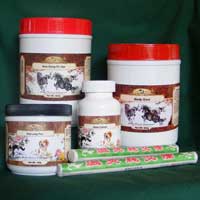 TCVM Herbal Therapy: Herbal therapies have been used for centuries in TCVM, and they remain one of the most powerful forms of treatment within the realm of Eastern Medicine. Dr.Bevilacqua utilizes only a few companies in her recommendation of prescription-strength herbal formulations for specific pattern-differential diagnoses. She has personally met the owners of each company she uses, and she places great importance and trust in the sourcing of their herbal ingredients. Dr. Bevilacqua received her training in TCVM herbal therapy from both the Chi Institute and A Time To Heal.
TCVM Herbal Therapy: Herbal therapies have been used for centuries in TCVM, and they remain one of the most powerful forms of treatment within the realm of Eastern Medicine. Dr.Bevilacqua utilizes only a few companies in her recommendation of prescription-strength herbal formulations for specific pattern-differential diagnoses. She has personally met the owners of each company she uses, and she places great importance and trust in the sourcing of their herbal ingredients. Dr. Bevilacqua received her training in TCVM herbal therapy from both the Chi Institute and A Time To Heal.
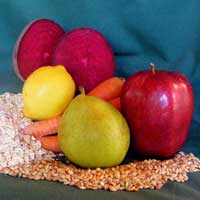 TCVM Food Therapy: As an integral part of TCVM, food therapy addresses imbalances of the body by using the qualities of certain foods to encourage healing. As a well-known food therapist once stated, “The food you eat can be either the safest and most powerful form of medicine or the slowest form of poison.” Dr.Bevilacqua can make dietary recommendations based on the individual clinical presentation and evaluation of your horse. Food therapy can also be a fun and healthy way to discover new and more appropriate treats for your horse. Dr. Bevilacqua received her training in TCVM food therapy from the Chi Institute in Reddick, FL.
TCVM Food Therapy: As an integral part of TCVM, food therapy addresses imbalances of the body by using the qualities of certain foods to encourage healing. As a well-known food therapist once stated, “The food you eat can be either the safest and most powerful form of medicine or the slowest form of poison.” Dr.Bevilacqua can make dietary recommendations based on the individual clinical presentation and evaluation of your horse. Food therapy can also be a fun and healthy way to discover new and more appropriate treats for your horse. Dr. Bevilacqua received her training in TCVM food therapy from the Chi Institute in Reddick, FL.
